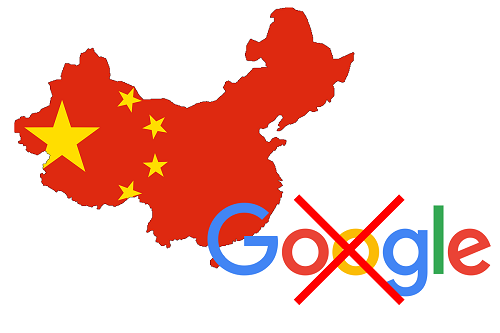How to Use Google in China

With their Internet censorship policy, the Chinese government effectively blocks access to most of the content coming from Western countries. Popularly known as the Great Firewall of China, it prevents you from using your favorite services and websites. This affects Google as well.
Luckily, there are solutions to this in the form of a VPN service. Virtual Private Networks enable a secure access to the Internet, while keeping your location and identity hidden. Although there are numerous VPN providers available, not all of them can penetrate China’s firewall.
Accessing Google from China
When you cross the border into the Republic of China, any attempt to access Google will become impossible. Not only that, but all the traffic coming from your device will also become visible to their firewall. This means it can monitor or even record anything you do on the Internet.
This allows the Chinese government to prevent you from accessing anything that’s on their ban list. Some of the other major services scrutinized this way include Facebook, YouTube, WhatsApp, Instagram, Viber, and many others.
The only way to get around the ban and access any of the mentioned services is by using a VPN. VPNs basically encrypt all the data coming from your device and send them to their own servers. From there, all that traffic is then rerouted to their corresponding servers, allowing you to bypass the Chinese firewall.
One important thing to note is that you must install a VPN on your device before you enter China. Reason being, all VPN websites are also banned. Therefore, you won’t be able to install any of them once over there.

VPNs to Use
Of course, VPNs are no stranger to the Chinese. That’s why they try to block any use of such services. They do it by simply blocking the common encryption protocols, rendering any use of a VPN ineffective. Even if you manage to connect with your VPN, chances are the firewall’s “deep packet inspection” will uncover that, in turn blocking access.
With these restrictions, most of the VPNs won’t be able to breach the blockade. Thankfully, there are some VPNs strong enough to penetrate even some of the firewall’s heaviest restrictions.
1. NordVPN
One of the most popular VPN services today, NordVPN is known for its security, reliability, and high connection speeds. They use over 5,600 obfuscated servers to hide your traffic from the prying eyes of the firewall. This way, they mask it to look like any ordinary traffic, so the firewall doesn’t even know you’re using a VPN.
With over 370 servers located in Singapore, Hong Kong, and Japan, you can easily access any of them from China. Using servers in relatively close proximity means you’ll be able to establish decent connection speeds. That’s enough to stream Netflix movies even in 4K while over there.
Using NordVPN you can use any of the Google services, as well as any other service that’s blocked by the firewall. Thanks to the 256-bit AES encryption, your IP address, location, and any data you may transfer will remain hidden at all times. What’s great about this, is that it also applies when using a local Wi-Fi connection.

2. ExpressVPN
With more than 3,000 servers available worldwide, ExpressVPN is also a great solution for unrestricted surfing. With a lot of servers around China, this can be a fine solution to your problem. Offering super-fast connections, you’ll be able to access Google and stream content in 4K without any problems.
Just like NordVPN, ExpressVPN uses obfuscated servers to mask your online presence. There’s also the mandatory 256-bit AES encryption, as well as the no-logs policy. That way, there won’t be any trace of your surfing history anywhere on their servers.
Thanks to the kill switch feature, even if your VPN connection breaks, your traffic won’t come under the China firewall’s spotlight. Using the DNS and IP leak protection, there’s no chance of accidentally exposing your location or any data you may be transferring.
3. Surfshark
Surrounding China with their server infrastructure, Surfshark lets you connect to the super-fast servers in Taiwan, Singapore, Hong Kong, or Vietnam. Besides these four, this VPN has also another 60+ countries on their server list. Just as the previous two VPNs, Surfshark’s speeds let you stream content in full HD without a glitch.
Using their NoBorders mode, you’ll be able to break through the Great Firewall of China with ease. Boasting the 256-bit AES encryption, automated kill switch feature, and no-logs policy, it has all the right tools to let you use Google unnoticed in China.
As an added bonus, Surfshark’s CyberWeb feature removes any ads and trackers that might compromise your device. There’s also integrated malware protection, as well as the anti-phishing feature. These will keep you safe from any threats that might compromise your identity and steal your personal data.

4. VyprVPN
Compared to NordVPN, ExpressVPN, and Surfshark, VyprVPN has the least number of servers available internationally. Regardless, there’s plenty enough of them surrounding China, allowing you to bypass their censorship. Some of the countries include Japan, Malaysia, and Vietnam.
With their proprietary Chameleon security protocol, you can mask your online presence, preventing the firewall from knowing you’re on a VPN. This feature also allows you to switch between different protocols, in case you need to. Just beware which protocol you use, since some of them might not be strong enough to go against the Chinese firewall.
Like the rest of the mentioned VPNs, VyprVPN also employs the no-logs policy, Wi-Fi protection, and the automatic kill-switch feature.
Googling from China
Hopefully, one of these VPN services will help you connect to your Google account while visiting China. Even if the Great Firewall of China isn’t your concern, VPNs definitely help you protect your privacy wherever you are. Keep in mind that you can use these on any device, be it a computer or mobile device.
Have you managed to access Google from China? Which VPN did you use? Please share your experiences in the comments section below.
















